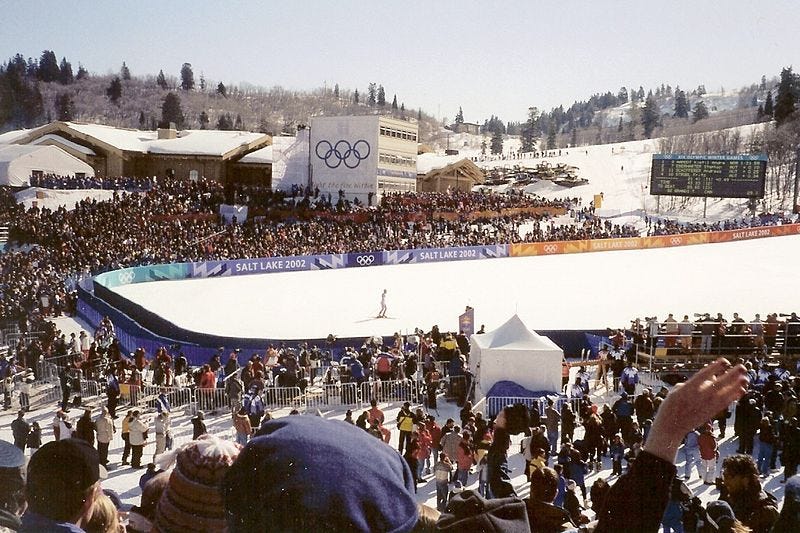Welcome to Planet Days, a five-minute roundup of the latest climate news and what it means for our Planet. If this was forwarded to you, smash that subscribe button:
Last week, Beijing punished officials for covering up the scale of recent floods, Los Angeles voted to ban oil and gas wells, and Australia pledged $700 million to save the Great Coral Reef.
In case you missed it, here’s what else happened around the Planet:
Monday, January 24
Ana batters Africa
After flooding Madagascar, Tropical Storm Ana hit the African mainland, triggering landslides and power cuts across Mozambique, Malawi, and Uganda. Over 20,000 people were affected, more than 3,000 homes were damaged, and at least 88 people were killed.
As the Planet warms, these types of storms are becoming more common. Meanwhile, rising sea levels compound the problem, making low-lying communities even more vulnerable. Reuters has the story.

Tuesday, January 25
The Russia problem
Tensions are heating up between Russia and Ukraine. Russia has amassed 100,000 troops along Ukraine’s border, enough for a full-scale invasion. But what looks like a political crisis is also an energy crisis.
Though the U.S. is seriously considering slapping Russia with crippling sanctions, and even sending troops to Eastern Europe, Europe’s situation is not so clear-cut. As Europe has slowly shuttered coal and nuclear plants, it’s more reliant on imports than ever before. Over a third of its natural gas comes from Russia, which could cut off supplies in the middle of a brutally cold winter and ongoing energy crisis.
The U.S. is now scrambling to fill a potential gap, working with suppliers from the Middle East, North Africa, and Asia to send gas and crude oil to Europe. China is also looking to chip in with its stockpile of liquified natural gas. The New York Times explains the situation.
The costs of going net-zero
There are huge benefits, and costs, to going net-zero, according to a new McKinsey report. To reach net-zero by 2050, the international goal set by the Paris Agreement, we’d need to spend $9.2 trillion a year for the next 30 years. That’s $3.5 trillion/year more than today’s investments.
That sounds like a lot, but the cost of doing nothing is even greater. Just last year, the Planet racked up $329 billion in economic losses from extreme weather. Reaching net-zero can help avoid some of these catastrophic impacts, while also leading us to a lower-cost, more efficient economy. The Guardian has more.
Wednesday, January 26
Under threat: Coffee, avocados, and cashews
Rising temperatures are threatening some of our favorite foods, according to a new study out Wednesday.
Coffee is the most vulnerable to climate change, with models showing current coffee-producing regions “drastically” less suitable for cultivation within decades. Avocados and cashews may be better off: Warmer temperatures could create new viable growing environments but will still shift production away from the current regions.
The authors told CNN that, in any case, “climate change adaptation will be necessary in most major producing regions.”

A climate-changed Olympics
The Olympics are kicking off this week, but the future of the games is shaky. A new study finds that 20 of the 21 past host cities are becoming too hot for snow sports, The Independent reports.
This year, Beijing isn’t without its own problems. A dry and arid region, Beijing is the first host city to rely solely on artificial snow, sparking environmental concerns about water and energy use. Air pollution has also surged in the leadup to the games. Bloomberg has more.
Thursday, January 27
Air pollution in your kitchen, backyard, everywhere
Another climate problem could be right in your kitchen. As much as 1.3% of gas, which includes the climate-warming gas methane, leaks from typical gas stoves. Multiplied by every U.S. household that cooks with natural gas, and that adds up to the equivalent to half a million cars on the road each year.
But your stove isn’t the only culprit. A new study links air pollution from fracking — the process of drilling and fracturing rocks to release fossil fuels — to earlier deaths among older people living near the sites. Inside Climate News covers both stories.
Separate research, also focused on older people, finds that even low levels of soot (a common pollutant from smokestacks, cars, and wildfires) can lead to earlier deaths, The New York Times reports.
Court cancels Gulf oil and gas leases
On Thursday, a federal judge canceled more than 80 million acres of oil and gas leases in the Gulf of Mexico, citing concerns over climate change.
Environmental groups, who criticized the Biden administration for selling these leases after promising to move the country away from fossil fuels, celebrated the reversal. The sale now goes back to the Interior Department for more analysis. The Washington Post has the full story.
But it’s not all a win. Biden still outpaces Trump in issuing drilling permits on public land.
Bonus
Fire-fighting goats
Three years ago, Australia saw some of the worst wildfires in history. Blazes ripped through 46 million acres of land and impacted almost three billion animals.
Now, officials are trying something new to combat the flames: Hungry goats. It’s estimated that 40 of these furry firefighters can chew through more than half an acre of dense vegetation in just two weeks. Tinder be gone. Read more from The Wall Street Journal.
Have a great week,
Brandon and Sam





